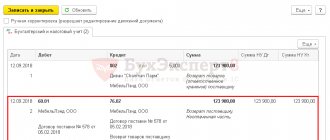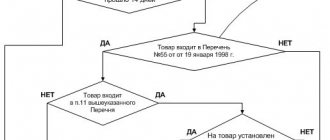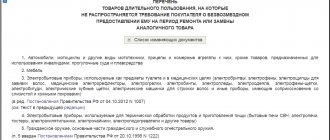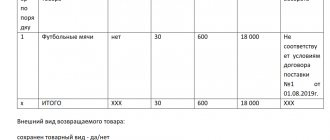Life is slowly returning to something resembling "normal" during the coronavirus pandemic, with many states gradually reopening businesses. However, just because some of your favorite places are open again doesn't necessarily mean you can go to them safely. I will never set foot in a boutique where goods can be returned: a friend-consultant told me which stores should be avoided after the pandemic.
Many stores have become more selective in their sales rules. While some major stores do not accept returns on items such as food, clothing, paper goods, cleaning products, pharmacy and health and beauty products, other stores have not yet adopted such strict policies.
If personal items that could come into contact with other shoppers' bodies, such as clothing or cosmetics, are returned, this could put shoppers at risk. Any store with an overly flexible return policy should be avoided until these guidelines are updated.
You are not offered disinfectant wipes at the entrance
One of the clearest signs that a store prioritizes the well-being of its customers can be found right at the entrance. If a store offers shopping carts and baskets but doesn't have sanitizing wipes available, it's likely a germ breeding ground.
Stretching for the back, exercise for the eyes: how to protect yourself from “office” ailments
Restaurants, gifts and more: how not to lose friends because of finances
Lawyers warned of fines and the threat of arrest for providing services at home
Stores that don't offer them to customers carry germs and the coronavirus on carts and other objects, especially plastic items, which can store COVID-19 for up to 72 hours.
We are preparing an application for the supply of equivalents: illustrative examples
If the customer uses the concept of equivalent in 44 Federal Laws, then follow the rules:
- If you are going to supply a trademark that is required by a government customer, then do not fill in specific indicators. Simple consent is sufficient (clause “b”, clause 2, part 3, article 66 44-FZ).
- If you plan to install an analogue, fill in specific indicators. Indicate the trademark if you know it. Read more about this in the article “Instructions for filling out specific product indicators.”
- Do not specify improved performance that is outside the customer's parameter range. Products are replaced with improved ones at the execution stage through an additional agreement (Part 7, Article 95 of the Law on the Contract System).
For example, in the purchase for the supply of tires the following is written: “Tires Matador MP 92 235/70 R16 106T OR EQUIVALENT (in the amount of 16 pieces).” Here is an example of indicating a trademark in auction documentation under 44-FZ.
And the contract is concluded for the supply of Foman (Goform) W705 235/70 R 16 106T tires - this is the equivalent of equipment.
They do not impose visitor restrictions
If the store looks packed and no one seems to be limiting the number of people entering, you should probably head home instead of going inside. When there are too many people in a store, physical distancing cannot be maintained and thus the risk of transmitting germs and viruses increases.
Bulgur can replace rice. Delicious peppers according to a new recipe
How to combine office dress code and autumn trends: tips from stylists
Why do employees make more mistakes when office lighting is cold?
We are preparing an application with non-equivalent goods
There are two exceptions to the rule about analogues; they are prescribed in clause 1, part 1, art. 33 44-FZ:
- Spare parts and consumables are purchased for products that the government customer is already using. For example, according to the rules of its operation, only “native” HP cartridges are suitable for an HP multifunctional device, but Epson will not work.
- You sign a contract for the supply (use) of goods that are compatible with the buyer’s products. For example, a customer buys a license and distribution kit exclusively for Kaspersky software, since programs from other developers conflict with the corporate security scheme.
Here are examples of what a trademark is under 44 Federal Laws without the possibility of providing an equivalent.
They don't put up any social distancing markers.
While you may think you can monitor your distance from other shoppers, stores that take safety seriously should have markers to encourage social distancing at checkout counters and other high-traffic areas. The generally accepted view was that 1.5m was a sufficient distance to prevent respiratory droplets containing traces of the virus from reaching other shoppers. The markers are a visual reminder to customers to keep two arms distance from others.
How to return or exchange goods in a store
If you ordered a product from an online store , but have not yet received it, you can cancel it at any time. If the goods have already been pre-paid, the seller is obliged to return the money you spent. The exception is goods made specifically for you to order - you cannot refuse them.
If the product has already been received, you are satisfied with its quality, but it did not suit you or, for example, you don’t like it, you can return (not exchange!) it:
- within seven days after receipt - if at the time of delivery of the goods you were provided with written information about the timing and procedure for returning the goods;
- within three months from the date of transfer of the goods - if such information was not provided in writing.
You can return any product purchased from an online store , but only if its presentation and consumer properties are preserved.
To return the goods, you must provide the seller with a document confirming payment (receipt). If there is no such document, you can provide the seller with other proof of purchase (a screenshot from your personal account, an email, and so on).
At the time you return the goods, an invoice or return certificate must be drawn up, which must be signed by you and the seller. The seller is obliged to return the amount of money you paid no later than 10 days from the date you submit the corresponding demand. In this case, the delivery of goods from the buyer to the seller is paid by the buyer.
If you purchased a product of good quality in an offline store , but it did not suit you in shape, size, style, color, size or configuration, you can exchange it for a similar product of a shape, style, color, size or configuration that suits you within 14 days, not counting the day of purchase. Please note that there are a number of products that cannot be exchanged when purchased in offline stores.
The exchange of goods is carried out if it has not been used, its presentation, consumer properties, seals and factory labels have been preserved.
If the seller does not have a similar product on the day of your request, you can, by agreement with the seller, pick up a similar product when it goes on sale or refuse the sales contract and demand the seller return the money paid for the product. In this case, the amount you paid must be transferred to you within three days after the goods are returned.
To exchange or return an item, you need to provide the seller with a sales or cash receipt. If you do not have a sales or cash receipt, you can provide another document confirming payment for the goods or refer to witness testimony.
Employees don't wear masks
While wearing masks may not necessarily prevent the wearer from getting sick, they will keep potentially contaminated employee respiratory droplets away from merchandise, displays and shoppers, meaning you're less likely to pick something up while shopping. So, if you see employees in a store with face masks hanging off their faces, or they don't have masks on at all, that's not a good sign.
How 44-FZ regulates trademarks
There is no such definition in the contract system law. It is contained in Art. 1477 Civil Code. It is understood as a designation that serves to individualize goods of legal entities or individual entrepreneurs, to which an exclusive right is recognized. Since contract legislation is based on civil law, we will establish that a trademark under 44-FZ is a unique indication of the manufacturer or the product itself, which identifies the subject of government procurement. Typically it is accompanied by the phrase "or equivalent", but there are exceptions.
Is an analogue indicated in procurement under 223-FZ?
223-FZ does not say how an analog differs from an equivalent. In clause 3, part 6.1, art. 3 of this law states that if the customer describes the procurement object indicating the brand, then he accompanies it with a phrase about the possibility of supplying an equivalent product. It turns out that these are synonyms in the context of procurement by certain types of legal entities.
There are exceptions to this rule. Do not specify the option to supply an analogue if you are purchasing:
- products that interact with the products you use, while others are incompatible with it;
- spare parts and consumables for the machines and equipment you use. Be based on technical documentation and operating rules for these machines and equipment;
- goods that are required to fulfill the terms of the government contract under 44-FZ;
- products with specific trademarks, service marks, patents, utility models, industrial designs, the place of origin of the goods, the manufacturer of the goods, if this is prescribed by the terms of international treaties of Russia or the terms of agreements of legal entities, which are specified in Part 2 of Art. 1 223-FZ for these companies to fulfill their obligations under completed transactions with legal entities, including foreign companies.
About the author of this article
Dmitry Sidaev Higher and specialized education in procurement: KhSUEP, diploma with honors in the specialty “Jurisprudence” and GAPM named after. N.P. Pastukhova, diploma with honors in the program “Procurement Management”. Author and ideological inspirer of the projects “GoodWin Project: Tenders made simple” and “Antidote 44-FZ: a cure for headaches in procurement.” Trains in procurement under 44-FZ, advises suppliers and customers, works as a guest manager of the tender department. Invited expert in many projects on public procurement.
Other publications by the author
- 2021.10.13News and changesFeatures of changes in prices for construction government contracts will be extended to geological exploration purchases
- 2021.10.06EISInstructions for unilateral refusal to execute a government contract: as amended in 2022
- 2021.09.30 Procurement control Is it possible to change the essential terms of a government contract: changes from 2022
- 2021.09.29223-FZInstructions for canceling purchases under 44-FZ or 223-FZ: what will change in 2022





